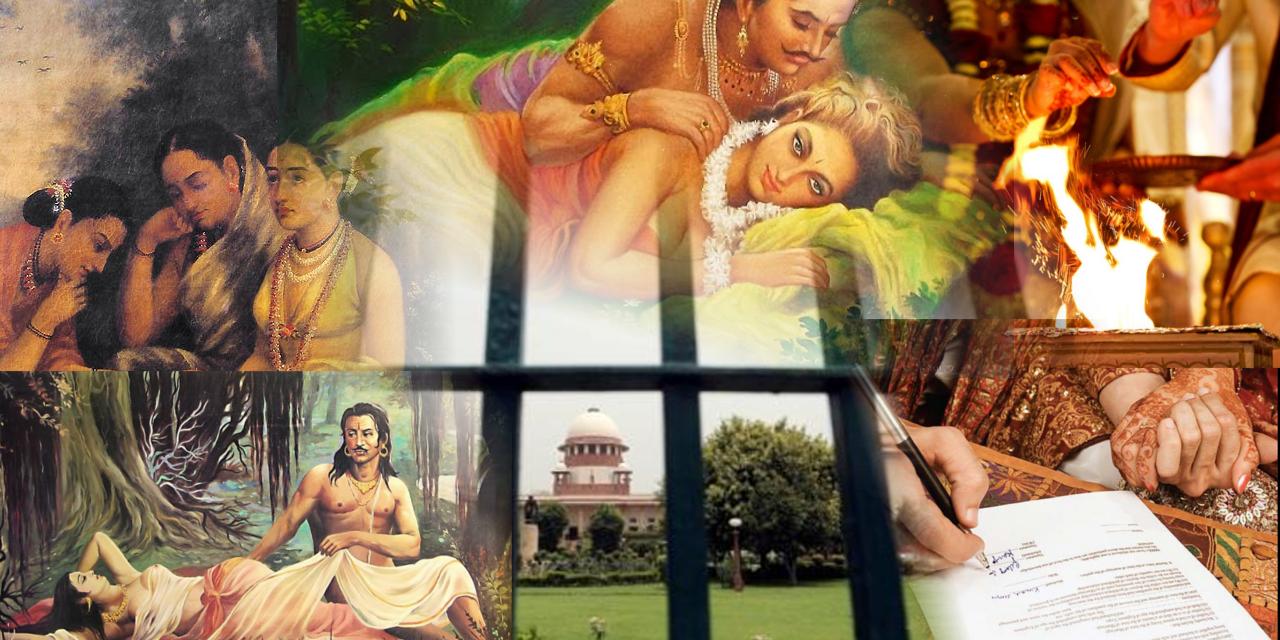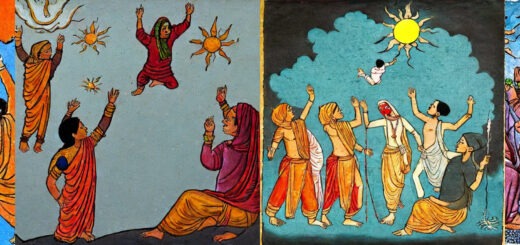Hindu philosophy is getting attacked by regressive Judiciary

Indian judiciary has decided to become de-facto leader on what constitutes Hinduism and what is not instead of following the law, after Narendra Modi has come into power. Rule of law and court of law are being replaced by rule of power and court of opinions while judiciary avoids accountability to the majority Hindu public it is supposed to provide justice to.
Ever since Narendra Modi declared that fixing judicial corruption is in his agenda, judiciary of India has decided to vent its frustration on poor Hindus. Gone are the days when Supreme Court of India (SC) respected separation of the church and the state. Gone are the days when SC avoided this topic by saying Hinduism can broadly be described as a way of life and nothing more.
No sir! Now, can menstruation be a factor in temple entry, asks Supreme Court. It debates if the wishes of God imagined as a deity actually exist or those who have managed the temple have created all this nonsense. It uses the tolerance of Hindus against themselves.
Recently, a madras high court (HC) judge has declared that expecting wife to earn is against Hindu philosophy. HC has decided that in Hindu philosophy, working women are an anathema. Or maybe working women are not ‘marriage material’? Who knows? HC is our priest and it knows Hindu philosophy better than Hindus.
So let us examine what actually Hindu philosophy as written in Manusmṛti says about marriage:
- It is NOT a relationship made in heaven. It is a practical relationship that is formed when a man establishes carnal relationship with a woman. It establishes separate dharma, or duties, to wife and husband.
- If any party breaks its duties, the other party is allowed to stop their duties as well.
- Marriage cannot be broken because marriages are not an institution but an act – what’s done is done.
- Multiple marriages are allowed when certain conditions are met which are fully detailed in Kama Sutra. For example,
- If conjugal relationship hasn’t been established in 3 months, a man is allowed to establish one with a woman of same stature who isn’t married or a dāsī/maid/woman of a lower stature who might be married. Dāsī is allowed to get payment for this.
- A woman is allowed to establish as many relationships as she wants, as long as she doesn’t deny sex to husband when he wants.
- Wife must provide cooked food to husband while husband must provide shelter to wife.
- If wife doesn’t provide cooked food, husband is free to marry someone else. If a husband doesn’t provide shelter, wife is free to move to become another man’s concubine.
- Multiple types of marriages have been prescribed:
- Brahm Vivah – A woman is married off by his father after ensuring sufficient dowry is given to a bridegroom learned in Vedas (definition of educated in ancient times).
- Daiva Vivah – Marriage to a priest along with sufficient dowry.
- Arsha Vivah – Marriage of a daughter after receiving dowry.
- Prajapatya Vivah – Marriage of a daughter without any dowry.
- Gandharva Vivah – Consensual relationship between woman and man. A written contract or a witness is not mandatory.
- Asura Vivah – Marriage of a man when he gives dowry but woman’s consent is not necessary.
- Rakshasa Vivah – Forceful abduction by a man after a woman’s family is killed.
- Paishacha Vivah – Rape. Seducing a woman not in capacity to give consent is also considered rape.
- Out of these 8, first 4 – Brahm, Daiva, Arsha, Prajapatya are considered proper. Interestingly, we see that in Hindu marriage dowry can not only be given but also taken or be done away with in a proper marriage and dowry doesn’t actually come out as a social evil.
- Rape is condemned and rapists will be socially outcast, but because it is Vivah, rape victim is supposed to live with the rapist and continue to do obey her dharma.
It is very clear from above that Hindu philosophy of marriage is very advanced and very detailed. I have but scratched the surface to illustrate those points that directly contradict our current law – The Hindu Marriage Act of 1955 (HMA). The reason for this mismatch is that HMA was created after definition of marriage got an Islamic flavour and then English speaking coat wearing west-followers modified that to make it more westernized.
Because of these historical reasons HMA has got absolutely no relationship to the Hindu philosophy. And yet HMA is just as alien to the current realities of our country where women are working shoulder to shoulder with men and live-in relationships have become a norm.
In this scenario judiciary has decided to not even follow the word of the law, giving lame excuses in the name of Hindu philosophy which it itself openly mocks as man-made fiction. Rule of law was established so that public could follow it. When judiciary usurps the word of law and creates its own, it undermines democracy and destroys trust of the public. Time has come for judiciary to accept that British are gone and it is Indians living in India who are to be the stalwarts of Indian law which judiciary needs to follow, and not the other way around.




Nice information… Good job keep it up… Thanks for sharing. Biography